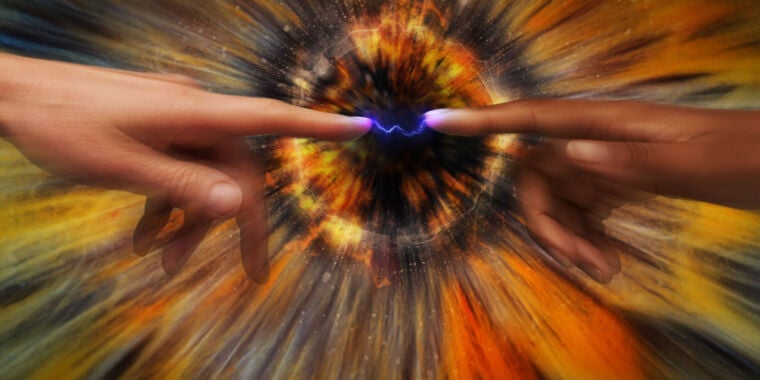Evidence shows that shoving data in peoples’ faces doesn’t work to change minds.
As a scientist heavily engaged in science communication, I’ve seen it all.
People have come to my public talks to argue with me that the Big Bang never happened. People have sent me handwritten letters explaining how dark matter means that ghosts are real. People have asked me for my scientific opinion about homeopathy—and scoffed when they didn’t like my answer. People have told me, to my face, that what they just learned on a TV show proves that aliens built the pyramids and that I didn’t understand the science.
People have left comments on my YouTube videos saying… well, let’s not even go there.
I encounter pseudoscience everywhere I go. And I have to admit, it can be frustrating. But in all my years of working with the public, I’ve found a potential strategy. And that strategy doesn’t involve confronting pseudoscience head-on but rather empathizing with why people have pseudoscientific beliefs and finding ways to get them to understand and appreciate the scientific method.



I understand empathy when it comes to harmless remedies like homeopathy and rescue remedy, that kind of thing, but when it gets to not getting your kids vaccinated because you think they’re poison or taking homemade colloidal silver instead of your prescribed antibiotics, that’s where I have trouble empathising.
My rule is that as long as something isn’t replacing some other medical treatment recommended by their doctor (assuming they even saw a doctor), then I don’t mind. My dad has gotten into grounding pillows, which don’t have good evidence behind them that they work, but he finds he gets better sleep. Could be placebo, I don’t care! If it works for him, that’s great. But if it’s replacing a treatment recommended by a doctor or something then I would have an issue.
I think I’m more worked up about this kind of thing than most people because I have familial connections to conspiracy theories 😂 but I guess that’s one or many steps beyond pseudoscience, which is what the article is talking about